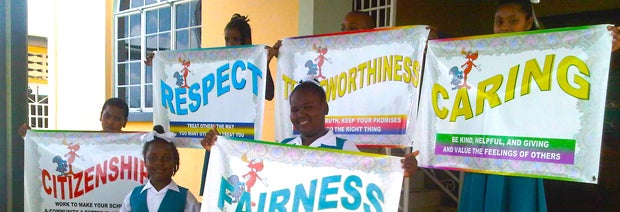In 2014, Trinidad and Tobago will be the first Caribbean country to adapt and pilot the CureViolence program. The CureViolence pilot, which will be funded under the IDB-financed Citizen Security Programme (CSP), will use a public health approach to anticipate and interrupt transmission of risk events and change the social norms and behaviors that perpetuate violence. The model was developed and first implemented in Chicago in 1995, where it is credited with significantly reducing shootings and homicides in targeted communities. Since that time, it has been successfully replicated in several U.S. cities and internationally.
Over the past 15 years, Trinidad and Tobago has seen a staggering increase in violence and crime. The nation of 1.3 million people experienced a 464% increase in murders between 1998 and 2008, and a 142% increase in woundings and shootings over the same period. The rates for murders, wounding, and shootings have gone down over the past several years but remain among the highest in the Caribbean region. The CureViolence approach to stopping the spread of violence focuses directly on those persons or groups who are at the highest risk for initiating violence or being a victim of it. Highest risk participants are defined as individuals who meet specific multiple criteria based on age, involvement in groups, engagement in activity associated with violence, and being a recent victim or close to a recent victim of violence that are derived from research and local data. CureViolence participants are usually beyond the reach of conventional services.
Complementing the project, the IDB will finance an impact assessment of the implementation of CureViolence in Trinidad. The evaluation will provide key information on the effectiveness of CureViolence in reducing the murder, woundings and shooting rates in target communities and serve to identify best practices for crime and violence reduction in Trinidad and Tobago as well as other Caribbean countries.
Dana King is a Modernization of State Specialist based at the IDB’s Country Office of Trinidad and Tobago.


The GAYAP Violence Prevention Peace and Love Movement greets this news with great jubilation and a sense of accomplishment since our organization was established in 2008 specifically to lobby for and participate in steering this approach to violence prevention. Towards this end we held several seminars beginning with “Gang and School Violence, Analysis and Solutions” followed by “Parents, Why Gangs? Protect Your Children!” and “Laventille, the Power, The Glory and the Untold Story”. We also participated in organizing a seminar on “Ready to Learn , Ready to Win ” with Camille Swap and Associates. The Group designed a public awarenesss campaign based on the public health approach and this concept was presented at The People’s Space in the Commonwealth Peoples Forum. This excellent campaign has not yet being funded and still awaits implementation. Meanwhile we are at the present time running another campaign on electronic billboards designed to lift the thought vibrations of the people of T&T and instill a sense of positive expectation regarding the nation’s progress. This campaign can be viewed on the electronic billboards by KFC in Independence Square and the Tobago Port Ferry Terminal on Wrightson Road.We are very pleased that the IDB has agreed to take this course of action and look forward to working along with the IDB and Citizens Security Program to realize its success.
Hello Karen. Could you please email me some details of the GAYAP program ? We would welcome your assistance at the Excel School. [email protected]
thanks.
LARA
Dear IDB,
I forgot to add that the Group has also designed a project called “Street Mediation” that is similar to Cure Violence adapted to the Trinidad and Tobago context. It is a harm reduction program. We have been working with two foreign based team members, Dr. Ulric Johnson from Boston and Arthur Augustine,a Mediator from Canada.Congratulations to the IDB, both on your blog and the start of this great and much needed intervention
This is great news. I agree that GAYAP need to have a great sense of acconplishment for continueing it’s promotion of the Public Health Approach to adress violence in all it’s forms in Trinidad and Tobago.
It is certainly encouraging to hear that, in the line with the CureViolence methodology, the public health approach to addressing crime and violence is receiving such avid interest and warm reception in Trinidad and Tobago. Looking forward to seeing the approach fully implemented in EPOS and the results of the impact evaluation!!
Our Rotary club has partnered with BGTT to implement an after school homework program in the Excel Composite School in Beetham, and would love to know whether we could also include this initiative with our kids. Please contact me if we can be part of the project .. thank you ! Lara